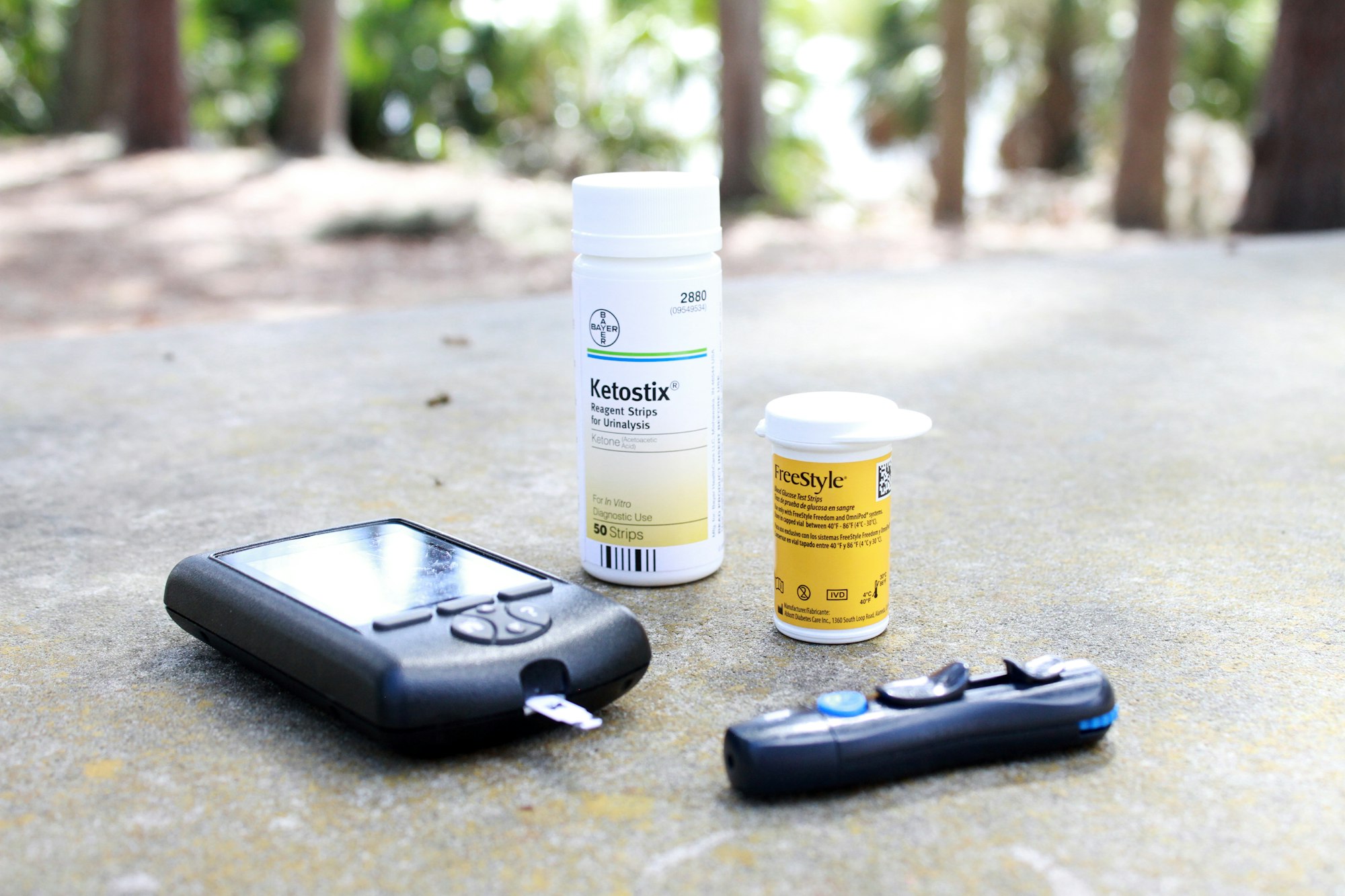What is Type Three Diabetes: Symptoms, Causes, Treatments and More
Type 3 diabetes is linked to Alzheimer's disease and has similar symptoms such as memory loss, confusion, difficulty planning & changes in personality.

Did you know that there's a term that links Alzheimer's disease to diabetes? It's called "What is Type Three diabetes?" and it's a fascinating, yet controversial topic. In this post, we'll explore the connection between what is Type Three diabetes and Alzheimer's disease, discuss the symptoms, causes, and risk factors, and share insights on diagnosis, treatment, and prevention strategies. Are you ready to dive into this intriguing subject? Let's get started.
Short Summary
- Type 3 diabetes is linked to Alzheimer's disease and has similar symptoms such as memory loss, confusion, difficulty planning & changes in personality.
- Risk factors include insulin resistance caused by obesity & lack of physical activity plus genetics and lifestyle choices.
- Dementia prevention methods involve healthy living habits like exercise, dieting & regular checkups with your doctor.
Understanding Type 3 Diabetes

Type 3 diabetes is a term used to describe the connection between Alzheimer's disease dementia and decreased insulin signaling in the brain. This controversial term has generated much debate among researchers and the medical community, as it's not an official stand alone diagnosis yet.
However, there's growing evidence that insulin resistance and Type 2 diabetes are risk factors for Alzheimer's disease and vascular dementia.
Insulin resistance inside the body can also contribute to type three diabetes, making it increasingly difficult for cells to convert sugar into energy. This can lead to damage in brain cells and an increased risk of developing dementia or Alzheimer's disease.By staying aware of any changes in your blood sugar level and taking a proactive approach to lifestyle modifications, it is possible to reduce the risk of developing dementia or Alzheimer's disease.
Type three diabetes is a form of diabetes that has been linked to Alzheimer's or vascular dementia. It is caused when the cells in the pancreas do not produce enough insulin, and other hormones that regulate glucose levels. This leads to an increase in sugar levels in the bloodstream which causes damage to nerve cells, affecting memory and cognitive function. The main risk factor for developing type three diabetes is having a family history of the condition.
People who have two or more close relatives that have been diagnosed with dementia are at an increased risk of developing this form of diabetes. Unfortunately, type three diabetes cannot be cured but the effects can be managed. It is important for those at risk of developing type three diabetes to monitor their blood glucose levels and make diet and lifestyle changes to reduce their risk of developing vascular dementia or Alzheimer's disease.
Origins of the term
The term "Type 3 diabetes" has been coined to explain the theory that Alzheimer's disease is caused by poor insulin control and disruption of insulin-like growth factors in the brain. This form of diabetes is therefore named Type 3 diabetes. While it's not yet generally accepted by the medical community as a clinical diagnosis, it has generated much interest and research into the connection between diabetes and Alzheimer's disease.
Studies have shown that people with diabetes are at a higher risk of developing Alzheimer's disease, and that people with Alzheimer's disease have higher levels of insulin resistance in the brain. This has led to the hypothesis that Type 3 diabetes may be a contributing factor to the development of Type 3 diabetes.
Connection to Alzheimer's disease
Type 3 diabetes, also known as "brain diabetes," is linked to Alzheimer's or vascular dementia due to the potential involvement of poor control of the blood sugar level and insulin resistance in the brain. The brains of people living with diabetes and the brains of people living with Alzheimer's disease share many similarities, which has led some researchers to believe that Alzheimer's disease dementia should be considered a type of diabetes.
With an aging population and an increase in chronic health conditions like diabetes, understanding the link between Type 3 diabetes and Alzheimer's disease is becoming increasingly important. By exploring this connection, we can potentially develop new prevention and treatment strategies to improve the lives of millions of people affected by these conditions.
Symptoms and Early Signs

The symptoms of Type 3 diabetes may include early Alzheimer's disease symptoms such as memory loss that impacts daily activities and social interactions, having trouble doing familiar tasks, misplacing items, confusion, difficulty making plans, disorientation, getting lost, changes in personality, and deteriorating reasoning skills.
These symptoms can be distressing for both the individual experiencing them and their loved ones, making early detection and intervention crucial.
Memory problems

Memory loss associated with Type 3 diabetes can have a significant impact on daily life and socializing. It can cause difficulties remembering names, conversations, and appointments, as well as following instructions or engaging in conversations. This can lead to feelings of isolation and challenges in maintaining relationships.
Type 3 diabetes is linked with a decrease in insulin production, which can result in a decrease in acetylcholine, a neurotransmitter that plays a role in memory and learning. This decrease in insulin receptors in acetylcholine may be responsible for the memory loss experienced by individuals with Type 3 diabetes and Alzheimer's disease.
Cognitive Symptoms
In addition to memory problems, individuals with Type 3 diabetes may experience cognitive symptoms such as difficulty focusing, trouble with problem-solving, and confusion. This cognitive decline can make it challenging to carry out everyday tasks, solve problems, and make plans.
The cognitive decline experienced by individuals with Type 3 diabetes can be particularly challenging for both the individual and their loved ones, as they often lead to frustration, anxiety, and a decreased quality of life. Early intervention and support can help alleviate some of these challenges and improve overall well-being.
Causes and Risk Factors

Type 2 diabetes has been found to double the risk of developing Alzheimer's disease, with both conditions involving a lack of insulin signaling. Insulin resistance in the brain can hinder insulin signalling. This has been identified as a potential contributing factor to Alzheimer's disease.
In addition to insulin resistance, several other risk factors contribute to the development of Type 3 diabetes, including genetics, lifestyle factors, and other chronic health conditions.
Insulin resistance
Insulin resistance occurs when the cells in the body don't respond to insulin, leading to high blood sugar levels. Factors contributing to insulin resistance include obesity, lack of physical activity, and consuming too many carbohydrates.
To combat insulin resistance, it's essential to make lifestyle changes such as exercising, losing weight, and adopting a healthy diet. Moderate levels of aerobic exercise for at least 30 minutes a day can be part of a dementia prevention plan. These changes can help improve insulin sensitivity and reduce the risk of developing Type 3 diabetes and Alzheimer's disease.
Other risk factors
Several other risk factors are associated with Type 3 diabetes, including poor diet, obesity, type 2 diabetes, inactivity, genetics, ethnicity, and high blood pressure. A family history of diabetes, high blood pressure, being overweight or obese have all been linked to Type 3 diabetes. Certain chronic health conditions such as depression and polycystic ovarian syndrome (PCOS) have also been linked to this form of diabetes.
Age is the most significant risk factor for Alzheimer's disease, with brain atrophy and a family history of the disease contributing to an increased risk. Traumatic brain injury can have far-reaching implications for cognitive impairment. History of moderate traumatic brain injury is associated with a significant risk of developing Alzheimer's.
Understanding these risk factors is crucial for developing prevention and intervention strategies for Type 3 diabetes.
Diagnosis and Detection

Diagnosing Type 3 diabetes typically involves a neurological examination, a review of medical history, and neurophysiological testing.
If you're experiencing symptoms of Type 2, diabetes mellitus and Alzheimer's, it's essential to consult with your primary care provider, who may refer you to an endocrinologist or neurologist for further testing and diagnosis.
Diagnostic methods
While there's no specific test for Type 3 diabetes, doctors may use a combination of medical history, blood tests, brain scans, neuropsychological tests, and neurological exams to diagnose the condition. Blood tests to measure glucose levels, insulin levels, and other markers of diabetes may be performed to help identify Type 3 diabetes.
Brain imaging, neuropsychological tests, and neurological exams can also be used to check for signs of Alzheimer's and other neurological issues. Early detection is crucial for managing Type 3 diabetes and reducing the risk of complications associated with the condition.
Referrals and specialists
Referrals and specialists play a significant role in the diagnosis and management of Type 3 diabetes. If you have diabetes, you may be referred to a diabetes specialist or endocrinologist for your care. These specialists can provide personalized advice and support to help you manage your condition and maintain a healthy lifestyle.
Regular check-ups with your healthcare provider are crucial for detecting early signs of Type 3 diabetes and managing the condition effectively. These check-ups can help you adjust your lifestyle and medication to keep your blood sugar levels in the normal range and reduce the risk of complications associated with Type 3 diabetes.
Treatment Options and Strategies

Treatment options for Type 3 diabetes includes managing diabetes with lifestyle changes such as diet and exercise, prescription drugs for cognitive symptoms, and psychotropic medications for mood changes and depression. In later stages of the disease, antipsychotic therapy may be necessary.
Intranasal insulin is also being studied as a potential therapeutic modality for Type 3 diabetes.
Lifestyle changes
Adopting a healthy lifestyle is crucial for managing Type 3 diabetes and reducing the risk of dementia risks as well as other complications. This includes regular physical exercise, such as walking, jogging, or swimming, for at least 150 minutes each week. Eating a healthy diet with a variety of fruits, vegetables, whole grains, lean proteins, and healthy fats can also help manage Type 3 diabetes. As I always say, what is good for the heart is good for brain health, as well.
In addition to these lifestyle changes, it's essential to quit smoking and limit alcohol consumption to reduce the risk of complications associated with Type 3 diabetes. By making these changes, you can improve your overall health and well-being and reduce the risk of developing Type 3 diabetes and Alzheimer's disease.
Medications
While there's no specific medication for Type 3 diabetes, medications such as metformin and insulin are used to treat Type 2 diabetes, which is related to Type 3 diabetes. Prescription medications may help with cognitive decline and symptoms of dementia, but there's still some uncertainty about their effectiveness for Alzheimer's disease.
In addition to medications for cognitive symptoms, psychotropic drugs may be used to manage mood changes and depression associated with Type 3 diabetes. In certain cases, antidepressants and anti-anxiety medications can be included in the treatment plan. They can help manage symptoms associated with mental health conditions.
Ongoing research

Researchers continue to explore new treatments for Type 3 diabetes, including lifestyle changes, medications, and other therapies. One promising area of research is the use of intranasal insulin as a potential treatment for Type 3 diabetes. This innovative approach aims to improve insulin signaling in the brain, which may help alleviate cognitive symptoms associated with the condition.
As our understanding of the link between diabetes and Alzheimer's disease continues to grow, so does the potential for new and effective treatments for Type 3 diabetes. By staying informed and supporting ongoing research, we can contribute to the development of novel therapies that improve the lives of those affected by this condition.
Prevention and Risk Reduction
Prevention and risk reduction strategies for Type 3 diabetes include adopting healthy lifestyle choices and undergoing regular check-ups with your healthcare provider.
By making these changes and staying vigilant about your health, you can reduce the risk of developing Type 3 diabetes and Alzheimer's disease.
Healthy lifestyle choices
To prevent Type 3 diabetes, it's essential to make healthy lifestyle choices such as engaging in regular physical activity, eating a balanced diet rich in fruits and vegetables, and maintaining a healthy weight. Additionally, quitting smoking and limiting alcohol consumption can reduce the risk of developing Type 3 diabetes.
By incorporating these healthy habits into your daily routine, you can significantly reduce your risk of developing Type 3 diabetes and improve your overall health and well-being. Prevention is always better than cure, and these lifestyle changes can have a lasting impact on your brain health.
Regular check-ups

Regular check-ups with your healthcare provider are crucial for detecting early signs of Type 3 diabetes and managing the condition effectively. These check-ups can help you adjust your lifestyle and medication to keep your blood sugar levels in the normal range and reduce the risk of complications associated with Type 3 diabetes.
By staying proactive about your health and engaging in regular check-ups, you can ensure that any early signs of Type 3 diabetes are detected and addressed promptly. This early intervention can greatly improve your chances of managing the condition effectively and maintaining a high quality of life.
Summary
In conclusion, Type 3 diabetes is a fascinating and complex topic that highlights the connection between Alzheimer's disease and insulin resistance in the brain. Through understanding the symptoms, causes, and risk factors associated with Type 3 diabetes and dementia together, we can better diagnose, treat, and prevent this condition. By adopting healthy lifestyle choices, undergoing regular check-ups, and supporting ongoing research, we can make strides in improving the lives of those affected by Type 3 diabetes and Alzheimer's disease. Remember, knowledge is power, and staying informed about Type 3 diabetes can help pave the way for a healthier future.
Frequently Asked Questions
What is Type 3 diabetes caused by?
Type 3 diabetes is caused by an unhealthy lifestyle, characterized by a diet high in calories, sugar, and fat, low in fiber, and typically accompanied by lower socioeconomic status. These factors increase the risk of developing type 3 diabetes significantly.
What is sugar type 3 diabetes?
Type 3 diabetes is a condition where the body is unable to effectively use insulin. Insulin is essential for the basic tasks of memory and learning, and when it fails to work properly, the brain becomes unable to process glucose in the brain cells, correctly.
This can lead to mental health complications including Alzheimer's Disease.
Why is dementia now called type 3 diabetes?
Research has revealed a strong connection between Alzheimer's disease and Type 2 diabetes, leading medical professionals to refer to the neurodegenerative disorder as Type 3 diabetes.
This recognition of the link between the two health issues sheds light on why dementia is now referred to as Type 3 diabetes.
Our Resources section can help you find the information and tools that you need. We have courses, videos, checklists, guidebooks, cheat sheets, how-to guides and more.
You can get started by clicking on the link below. We know that taking care of a loved one is hard work, but with our help you can get the support that you need.
Click here to go to Resources Section now!
google-site-verification: googlef62e10282e852713.html





